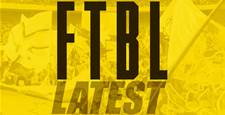Greg Alexander is renowned as one of the smartest halfbacks to have ever laced on a boot.
Greg Alexander is renowned as one of the smartest halfbacks to have ever laced on a boot - and he is still one of the most respected brains in the game.
Think ‘80s rugby league and memories which might stick for most are of brawling, sweaty, seething prop forwards grinding each other into sun-cooked or mud-caked suburban ovals. But the game had its beautiful side back then, too.
Our more stately readers would’ve admired the work of the great thinkers and ad-lib on-field craftsmen of the day – warriors like journeyman Phil Blake and Parramatta’s then-blond wizard, Peter Sterling. Before the days of structured corridors of attack and “A and B” defenders, all play was broken play. These silky-skilled magicians were too hard to stop – two slap-happy training sessions a week were never enough for the big men to figure out how to combat their deadly ball delivery and ballet-like footwork.
Penrith’s Greg Alexander was another one. The prince of Penrith is still renowned as one of the smartest halfbacks to have ever laced on a boot. Like Anchorman’s Ron Burgundy, Alexander was “kind of a big deal” in Penrith in his heyday. He picked up the game’s biggest individual accolade, the Dally M Medal, in just his second season in the NSWRL comp in 1985, and would later become just the second player in history (after Terry Lamb) to score 100 tries and 1000 points for the one club.
He ducked off to Auckland for two seasons in the mid-90s, but he’ll always be a Panther – he’s sat on the football club’s board since 2002, meaning his passion for the game kept pumping through his veins long after his retirement in 1999. Viewers of Fox Sports’ NRL coverage can see this bright-eyed enthusiasm, and listeners of League Today on Sydney radio station 2UE each afternoon and night can hear it in his youthful, still-breaking bark.
His is still one of the most respected brains in the game, so who better to talk Origin, sleeping giants (of many varieties) out western Sydney way and rugby league’s turbulent but promising land-scape than the man they call “Brandy”?
We’ve broken the back of another blockbuster State Of Origin series – as a former Blues player, does the sound of the Maroons approaching each year make you think, “Oh no, here we go again”?
Over the last couple of years, there’s been argument and debate about who should be in the New South Wales side, and although it’s not forgotten, sometimes we can forget what a good team they’re up against. This Queensland side ... it’s the best ever. I was “fortunate” enough to play against the other great Queensland units which had Lewis, Miles, Meninga, Langer, Belcher and the like; this current one’s right up there. We only have to look at the individuals in the Queensland line-up and even the form some of them are in now.
Slater and Smith and Cronk, the latter who’s been part of the side but not starting ...
They’ve had Thurston and Lockyer; these blokes have played football together for so long now that those combinations ... they know each other’s games. I suppose that’s the argument: Ricky Stuart said last year he wants to build a side and pick a nucleus of a squad and try and keep it together for those reasons – to build combinations. But it’s hard to stick with players who are out of form and getting beaten.
We’ve been massive underdogs, really. On a whole, even though we’ve picked some players in wrong positions and made some selection mistakes, we’ve been competitive against a great outfit. I think all New South Wales supporters think we’re an outside chance ... No one gives up completely.
Over the years, with its giant nursery of juniors, the Penrith football club has been referred to as the Sleeping Giant of the game in Australia. Is it frustrating there aren’t more premierships on the honour board?
It is. Not necessarily in terms of premierships, but not being a more consistent side and not, as a club, playing semi-finals football regularly. We’ve struggled to get the right people in positions to take advantage of the size of our junior league. We’ve failed to have people in positions to get their head around just what it takes to build a strong club. I like to think we’ve got the right people in place at the moment.
I’m referring to people in coaching, talent identification; they’re the people responsible for developing juniors. We’ve been poor in those areas, no doubt. I think we’ll see that changing over the next two, three, four years and we’ll start to come back to developing our own juniors; quality kids who can come through and star for the club they’ve grown up and played their junior footy for. That’s the key to building a strong club.
How would you sum up what the game means to the people of Penrith, a traditional rugby league heartland in Sydney’s west?
I know how important the game is to the people of Penrith, but sometimes you think, “Well, is it that important?” Because crowds aren’t as good as they should be, membership isn’t as strong as it should be. Sometimes I think people in Penrith can become a bit complacent about their footy team. I know it’s easy, if you’re a borderline supporter, not to support or not to pay to go to the footy if they’re losing. That can be the key to getting more people into a stadium, of course it is – winning football games plays a big part. But you’d like to think that, you know, in a place as big as Penrith and its surrounding areas, that win, lose or draw, you’d want to be hoping in a few years’ time we could nearly fill the stadium no matter what – no matter how we’re playing.
You’d like to think we’d have 15,000 members, whereas at the moment we have half that. That’s a culture that’s been slow to develop in rugby league. It only clicked for the NRL that, “Wow, membership’s important,” a few years ago. So it’s been a slow burner for rugby league whereas AFL realised 20 years ago that membership is the key. We’re in a
fight not just among other clubs, but other sports out there, too. I think we need to show just how much we do value our footy side and to do that we need people to front up. We need people to go to the games. The crowds aren’t good enough and I can understand that ‒ because the footy’s not good, either.
Life a little too comfortable out west in front of the home entertainment system, maybe?
The penny needs to drop with our rugby league supporters that if they want their team to be strong, if they want their team to continue playing in the competition, we need healthy crowds at the footy. I’ve no doubt that down the track, the new Commission will be thinking of rationalisation, and if we’re talking expansion, they’ll be wondering whether the game can expand and still have nine Sydney clubs. I’d hope that Penrith will be one of
the strongest Sydney clubs, so if ever there’s a time in the game where they start thinking “there’s too many Sydney clubs”, Penrith would be in a strong enough position to stand on its own two feet and continue in the NRL.
We all know Phil Gould’s NRL expertise is why the Panthers put him in charge of your entire footy operations, but we’re betting his passion for the club was just as badly needed ...
“Gus” is the man. He’s overseeing everything and he does it well. You can only do that if you’re passionate in what you’re doing and who you’re doing it for and Gus certainly is.
He was originally sought-after to be involved in the coaching, as coaching director. That was his original appointment. Within three days, that went from coaching director to general manager of football. We needed someone to drive the rugby league business. Although Gus in his post-playing days – apart from working in the poker machine industry when he first retired ‒ has been a coach and a commentator, he’s such a lateral thinker and such a smart bloke that the general manager position is suiting him down to the ground. His contacts and his ability to open doors in the business world, his knowledge of the game is important, but his mantra since he’s been here is to have a look at all the operations of rugby league and work on what we need and what’s not working. That’s from junior development right through to major sponsorship.
Can you to this day believe that such a toiler like your old rake, Royce Simmons, scored two tries in his farewell grand final in ’91? Didn’t he double his career try-scoring feats that day?
Thank God he did! Not that “Simmo” didn’t receive the individual accolades while he was playing, because he played for Australia – I’m sure that was what he dreamt of as a kid, like everyone. But to finish the way he did ... If you talk about whole-heartedness and bleeding for the club, that was Simmo. He was a great club man, a great captain and it was fitting that he bow out like that. Not everybody gets that fairytale finish and he deserved it.
Your winning conversion to put the Panthers seven in front with minutes remaining meant the end of a long wait for the club’s first title – 25 years. Did that figure in your emotions as you watched the ball go over?
I still get goose bumps now thinking about it going over ... It was just an enormous amount of relief. We were struggling at half-time. Canberra was a great side. They’d beaten us the year before and it looked like we were going to get stage fright again. I think the turning point in that game was ... we played nearly the perfect second half of footy. I can’t remember Canberra even being in our half! Big “MG”, Mark Geyer, got sin-binned for a bit of dissension. We’d scored a try, but the ref, Bill Harrigan, said that our prop Paul Clarke had knocked Canberra’s [Matthew] Wood in the head, who dropped the ball for Paul Smith to score. I don’t know whether the officials felt it was a lousy decision, but there just seemed to be a bit of leniency towards us after that. I think Royce led the way – he threw everything at Canberra. It wasn’t all legal, but we got away with a little bit more because we were down a player. That drove us to the win.
Mal Meninga was at his best that day, hey? Remember him throwing Brad Izzard back into the field of play after he’d crossed the stripe?
He did that to our fullback, Greg Barwick, too. Twice Mal Meninga just grabbed our blokes like they were under-7s kids ... pulled them back into the field of play. Players could pick their own numbers in Super League ...
Why did you choose 55? It’s not really a traditional halfback’s number.
“Because there were no numbers left! I was with Auckland and when I came back to Penrith – not that I cared – Royce, the coach, said, “Mate, all the blokes who were here last year get first pick.” And I said, “Fair call, I can understand that.” So I come home from Auckland and all that were left were the numbers in the 30s, 40s and 50s, so I chose the highest number – 55. I don’t know why.
Any really scary moments from the brutal ‘80s and ‘90s period of league which made you think, “What am I doing here?”
I think that more to myself these days. I watch these blokes hit each other, and I stand on the field for Monday Night Football watching them run out and warm up and think, “My God, how big are these blokes?” There’s moments when you’re close to players who get injured, but there’s never a moment when you think, “What am I doing out here?” When you’re playing, you just play. The physical side of it is just part of the game. Once you retire and watch is when you realise how tough it is.
You were one of the game’s more clever, crafty players in your day ... Did you enjoy the tactical side of the sport?
League wasn’t as structured back then as it is today. We knew that the forwards would hit it up a couple of times and you’d swing it out to the backs – and that’s how the game was played. As a halfback in the ‘80s, you’d try and position yourself and your team where you thought you could gain the most advantage. I’d like to get the players to the middle of the field, spread the defence a bit thin either side and direct them to the part of the field I thought best to attack. I suppose you had to think more for yourself in those days because the coaching wasn’t as strict; you wouldn’t have a game plan, whereas sides these days are virtually structured in everything they do. It was ad-lib footy in the ‘80s. It was play-off-the-top-of-your-head. You’d have a couple of set plays from taps, maybe scrums, but otherwise it was pretty much you running your own race out there. It was like playing backyard footy – but on a bigger scale.
The off-field footy culture seemed a bit ad-lib too, yes?
Of course. When I started, it was training Tuesdays after work and Thursdays after work ‒ and on Saturday mornings. Blokes would take their disco gear to training on the Thursday night – it would all be hanging up around the change room wall. They’d train, as soon as training finished, it was off across the club to Panthers. You’d train Saturday morning if you were playing Sunday ... and that’s all there was. There were no weights – no one did weights. There was a universal machine where you might do a couple of circuits ... But it changed pretty quickly. By the late ‘80s and early ‘90s, the game had gone through that phase where it was becoming professional, but not back when I started in 1984. You’d have a steak and eggs for breakfast before the big game. That’s old-fashioned rugby league.
Have you ever seriously thought about taking charge of an NRL side?
Until this year and midway through last year, I’d been on the coaching staff at Penrith since I retired. I’d done bits and pieces; kicking, generally. It doesn’t interest me to coach full-time. That’s too tough a gig, too time-consuming. I can understand the thrill that coaches who absolutely love it get out of it, but it’s not in me.
If you were a CEO, then, with an open chequebook, who would you chase out of today’s stars to build a new team around?
It would be hard to go past a few Melbourne players, wouldn’t it? I think Cameron Smith, Billy Slater and Cooper Cronk would be a good start. They’re a great combination, they’re great professionals and they seem like such good club people. They’re the full package. They take their rugby league very seriously ‒ they don’t take it for granted. They’ve done all the work over the years to make them the players they are. They’re the full package. They’re good on and off the field for the game.
Has the Panthers’ footy board found itself in secret midnight bunker meetings discussing the AFL’s Giants’ supposed threat? They’re playing in your club’s backyard after all ...
Not really, because there’s not much we can really do about AFL. We just have to make sure what we’re doing is right. There’s more talk about what we need to do as a club, to make sure the sport thrives in our area. Of course it’s been mentioned – we’re not living under rocks out here. We know they’re there, but we don’t discuss them that much.
Would you have played AFL if you were approached while playing for the Panthers?
You know what, these days, if they were going to throw a million and a half at me, yes. If I was Israel Folau, absolutely. You’d have to. You’d be mad not to give it a crack. But the money would have to be astronomical. It would have to be double what you were getting paid to play league. So, Karmichael and Israel, the timing’s everything, isn’t it, in sport? New franchises were starting up, they needed names to drive their marketing. Hunt and Folau provided that for them. If I was playing league and it was the era where they had another start-up franchise and they said, “We’ll give you a million and a half to jump codes,” absolutely. I’d probably always have in mind that I’d go back to league after three years, but I’d take their money.
Where should investigating “new markets” rank on the new Commission’s to-do list?
There’s no other place in the world with four football codes, especially with such a small population. Other countries don’t have the same battle that our football codes have. I think all four codes realise they need to grow, and if their games are going to grow, they need to make sure they’re in strategically the right positions in the country. Some codes have realised that expansion doesn’t work if you’re not ready ... I think rugby league needs to expand into new markets, but only when we’re ready. You don’t want to spread the talent too thin. You want to make sure where you’re going is worthwhile.
Where should the game head next then?
Perth’s a no-brainer. It would get the support. We should never have left Perth in the first place. The Western Reds should’ve stayed there. This isn’t a new area, either, but there’s room for another Queensland club. I know the Central Coast would love a side, too, but geographically are they too close to Sydney? We might have too many clubs here already anyway. That’s the big problem for them, the fact the Central Coast is jammed in between Sydney and Newcastle.
People enjoy hearing your comments on TV and radio – do you have any gripes or hobby horses about the game you like to ride?
I talk that much footy ... which I don’t mind doing, either. People ask me, “Do you get sick of people talking footy to you,” and I don’t. Not at all. I can talk footy all day ... forever. It’s just what you are. You’re a former footy player who likes talking about footy. With anyone, as long as someone’s not obnoxious or rude, I’m happy to talk footy anytime, anywhere. I liked talking about it when I was playing, too, but playing is different. I think people approach you in a different way when you’re playing. It’s a different “talk” of footy between when you’re playing and when you’re finished. When you’re playing, it’s more about you and your team, whereas when you finish playing, the conversations you have with people about footy are more general – from anything; rules, to what’s in the paper, the latest issue, who has screwed up off the field. I’d talk to a Dragons fan about the Dragons, whereas when I was playing, I couldn’t care less about the Dragons. Didn’t even bother me who was playing for them. Now, because I’m commentating, I’m across all teams ... I like talking footy, with all fans.
Getting back to your question, there’s a lot of pressing issues for the Commission. They must have so much on their plate. There is so much to do. I think the big thing for the Commission is the television deal and making sure that money is spent right. You only get a crack at a television deal once every five or six years; you have to make sure it’s done well, properly. You’re not going to keep everyone happy, but you have to keep most happy and make sure that money goes to the right places.
Related Articles

Viva Las Vegas: Join Golf Australia magazine's Matt Cleary on a golf and rugby league spectacular
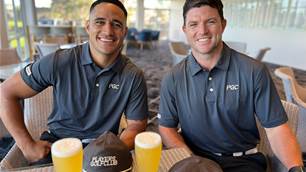
19 Holes With ... Chad Townsend and Val Holmes
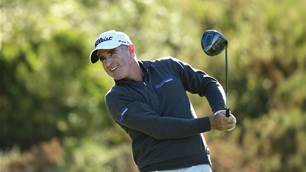
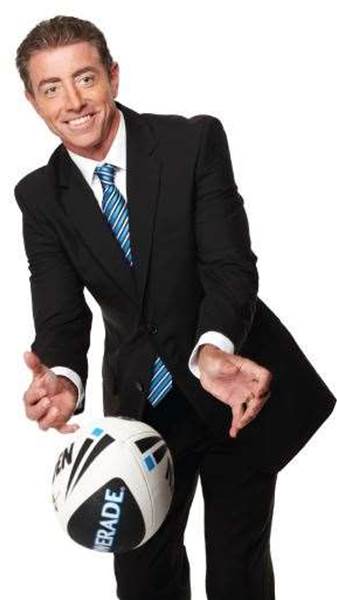
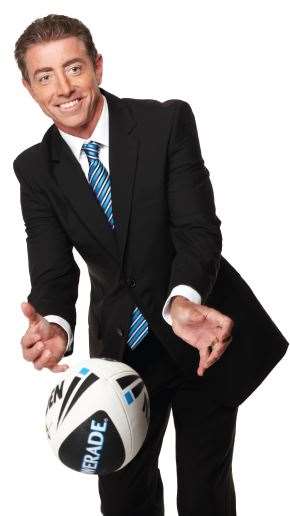
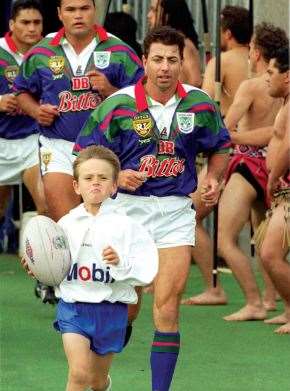
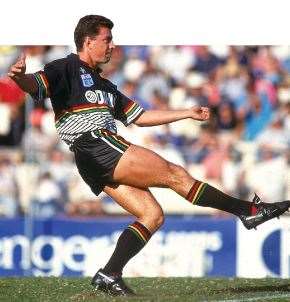
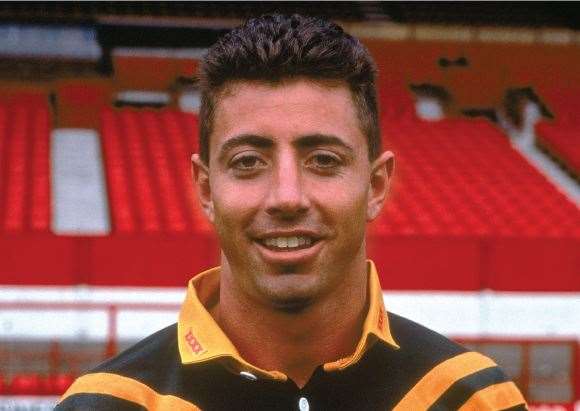
.png&h=115&w=225&c=1&s=1)



